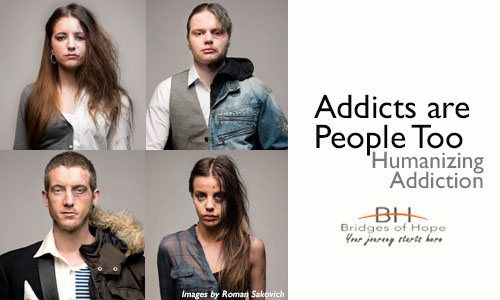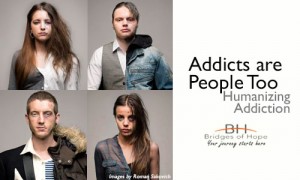Addict. Addiction. These words have always had a negative connotation. This is probably why many institutions would rather use the terms “substance dependence” or “drug dependent” or any other term to refer to people who are struggling with one form of addiction or another.
People associate the words “addict” and “addiction” with danger, unstable, messed up, wasted, homeless, jobless, irresponsible, hopeless, even crazy. More often than not, people would conjure images of a disheveled bum walking unsteadily in the streets when they hear “addict.”
What they don’t realize is that these addicts have families. They have jobs, careers, money, a house, a family, even a good, well-respected reputation in the community. What many of us may not realize is that these addicts have loved ones: family members, friends, children, and partners who are struggling with their addiction just as much as they are struggling themselves.
With our culture as it is, we often scoff at homeless people in the streets and think of them as probably addicts. We raise our eyebrows at people with tattoos and piercings and think that they must be addicts. Little do we know that addiction has many faces, and whatever the face portray, every addict deserves even just a little respect–because addiction is a disease, not a character defect or a moral failing.
Addicts are People Too
Addicts are people too, like you and me. They have made bad choices along the way, encountered a difficult past that we may have absolutely no idea of. In the process, they made a wrong turn and turned to a solution that will ultimately lead them to the path that not many can go back from.
These so-called addicts may have gone through childhood trauma, domestic abuse, or something so big that they don’t know how to deal with it. They may have grown up with parents or people who were addicts too, and so they think that this is normal. There are also many factors that can contribute to one person being predisposed to addiction, which can pave the way for them to be hooked even with just one or a few tries. Therefore, addiction has many faces and can affect many people, no matter what they look, what they do, or how they seem.
Here in the Philippines, there’s an estimated 6.7 million drug addicts, a statistic that dates back to 2004 alone (imagine how the figures are today). According to this, methamphetamine (or shabu) is the more preferred drug of choice by one in every 29 Filipinos between 10 and 44 years old. These people suffer other complications brought about by their drug use, and they may even be suffering from drug-induced mental problems too.
Out of all these people, only a few will come out and acknowledge their substance abuse and dependence. There will only be a few that will seek help. Many of these will only come to terms with their addiction only when they have hit their rock bottom.
While society and the media twists addiction from entirely negative to a watered-down version where “addicted” can connote to anything we do in excess, addiction is a serious problem.
Addiction is someone who has become so utterly dependent on a substance or behavior that they can’t function without it, not when someone eats chocolate everyday or always craves for ramen.
Addiction is serious and should be treated as such, not sloppily referred to with just about anything just to have a status message or to lazily describe oneself or one’s hobby. An addict is a person who has become so dependent on something that he most probably needs professional help.



Recent Comments